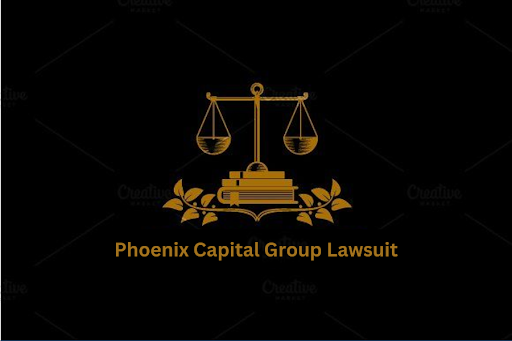
Phoenix Capital Group Lawsuit
Phoenix Capital Group recently made headlines due to a contentious lawsuit in the dynamic world of private equity and investments. This company, known for its focus on real estate and energy ventures, now embroiled in a legal battle that raises serious concerns. The Phoenix Capital Group lawsuit is attracting significant attention as it casts doubt on the firm’s business practices, transparency, and ethical responsibility in the financial sector.
In this article, we will delve into the specifics of the Phoenix Capital Group lawsuit, explore the potential ramifications for the company, and provide context about the operation of private equity firms in the modern financial landscape.
Overview of Phoenix Capital Group
Phoenix Capital Group is a private equity firm based in the United States, specializing in investment opportunities, especially in the real estate and energy sectors. The company has positioned itself as a provider of high-return investment options aimed at accredited investors, with a focus on alternative investment strategies.
Founded by industry veterans, Phoenix Capital Group has been involved in numerous projects ranging from real estate development to energy exploration and other high-risk ventures. The firm is known for offering attractive returns but has faced criticism for its lack of transparency and the inherent risks associated with some of its investment options.
Key Issues in the Phoenix Capital Group Lawsuit
The Phoenix Capital Group lawsuit centers around accusations of deceptive practices, fraud, and the misrepresentation of investment opportunities. A group of investors has filed a suit against the firm, claiming that Phoenix Capital Group misled them about the potential returns on their investments, failed to disclose critical risks, and engaged in unethical actions that fell short of the standards expected from an investment firm.
The main points of contention in the lawsuit include:
Misleading Claims of Investment Returns
Investors allege that Phoenix Capital Group made exaggerated claims about the returns on its investment products while failing to adequately highlight the associated risks. Some investors were under the impression that they were investing in low-risk ventures, only to later discover that their investments were much more speculative and volatile than initially promised.
Failure to Provide Essential Information
According to the lawsuit, Phoenix Capital Group did not offer sufficient information to enable investors to make informed decisions. This lack of transparency included failure to disclose how funds would be allocated, the specific risks tied to certain investments, and the financial status of the projects the firm was backing.
Violation of Fiduciary Responsibilities
The lawsuit further accuses Phoenix Capital Group of breaching its fiduciary duties to its investors. The firm is alleged to have failed to act in the best interests of those who entrusted their money to the company. Allegations also include the improper use of investor funds and a lack of adequate oversight over the management of investment projects.
Unethical Business Practices
Investors claim that Phoenix Capital Group engaged in unfair business practices, such as misleading advertising, mishandling of funds, and failure to honor agreed-upon terms and conditions.
Legal Consequences of the Phoenix Capital Group Lawsuit
The Phoenix Capital Group lawsuit could have significant legal consequences for the company. If the accusations are substantiated, the firm may face substantial financial penalties, a loss of investor confidence, and long-term damage to its reputation within the private equity and investment sectors. Moreover, the outcome of this case could set a precedent for future legal actions against other private equity firms involved in similar practices.
Additionally, the lawsuit could prompt increased scrutiny of the private equity industry. Given that private equity firms typically operate in less-regulated environments compared to publicly traded companies, they enjoy more flexibility regarding the investment products they offer and the risks they undertake. However, this lack of regulation can sometimes pave the way for questionable practices that harm investors, especially when a firm is not fully transparent about the risks.
How the Lawsuit Affects Investors
The Phoenix Capital Group lawsuit serves as a cautionary example for investors, emphasizing the importance of performing thorough due diligence before committing to private equity investments. Many private equity firms, including Phoenix Capital Group, target accredited investors who may not possess the same level of experience or expertise as institutional investors or more seasoned individual investors.
This lawsuit highlights the necessity for investors to carefully evaluate any private equity firm before entrusting their capital. Essential steps include requesting detailed information on the projects being financed, understanding the risks involved, and ensuring that the firm has a solid history of ethical business practices. Investors must also be vigilant about potential conflicts of interest and ensure that the firm’s management is acting in their best interest.
How Phoenix Capital Group is Addressing the Legal Claims
Phoenix Capital Group has firmly rejected the accusations in the ongoing lawsuit. The company insists that it has consistently been transparent with its investors, always striving to act in their best interests. According to the firm, any allegations of misrepresentation or failure to provide key information are without merit. Phoenix Capital Group further asserts that it has followed all necessary regulations and complied with the law.
Despite these defenses, the company’s response has not alleviated the rising concerns among investors and the public. As the legal process continues, Phoenix Capital Group will likely face mounting pressure to demonstrate its good faith actions and prove that it has fulfilled its legal and ethical duties.
Understanding the Broader Issue: The Role of Private Equity in Finance
The Phoenix Capital Group lawsuit forms part of a larger dialogue about the function of private equity firms within the financial sector. These firms often operate with less transparency and fewer regulations compared to publicly traded companies. This reduced oversight can sometimes foster risky practices and insufficient accountability, which is one of the core issues raised in the Phoenix Capital Group lawsuit.
Private equity is seen by many investors as a way to diversify their portfolios and access potentially lucrative investment opportunities. However, these investments inherently carry a degree of risk that is not always immediately obvious. The Phoenix Capital Group lawsuit acts as a cautionary tale, urging investors to conduct thorough research and exercise caution when considering private equity options.
Key Takeaways from the Phoenix Capital Group Lawsuit
The Phoenix Capital Group lawsuit provides several important lessons for both investors and financial professionals:
- The Need for Clear Communication:
Private equity firms must be transparent about the risks involved with their investments. Failure to do so can result in legal consequences and long-term damage to the firm’s reputation.
- Thorough Research is Crucial:
Investors must take the time to carefully research and assess investment opportunities, particularly in the private equity space. This means reviewing a firm’s history, understanding the associated risks, and seeking advice from independent financial experts.
- Understanding the Risks of Alternative Investments:
Although private equity can yield high returns, it also carries greater risks. Investors must weigh these risks against the potential rewards, particularly when dealing with firms that operate with less regulatory oversight.
- Ensuring Accountability in the Private Equity Industry:
The lawsuit underscores the need for increased accountability in private equity. Investors should expect firms to operate with integrity and be held accountable when they fail to meet their obligations.
Key Facts:
- Allegations Against Phoenix Capital Group
The lawsuit involves accusations that Phoenix Capital Group misrepresented investment opportunities and failed to disclose important information to investors. The company denies these claims and asserts that it has always acted in good faith.
- Private Equity Concerns
This legal case highlights the risks associated with private equity investments, which often lack the transparency and regulatory oversight found in public companies. The Phoenix Capital Group lawsuit has sparked broader discussions about accountability in the private equity industry.
- Investor Reactions
The lawsuit has raised concerns among investors, many of whom are questioning the firm’s commitment to transparency and ethical business practices. As the case progresses, investors will be watching closely to see how Phoenix Capital Group handles the allegations.
- Potential Impact on the Private Equity Sector
Depending on the outcome of the case, the Phoenix Capital Group lawsuit could influence future regulations and standards within the private equity space, particularly regarding the level of accountability firms must adhere to.
- Legal Proceedings
The lawsuit is still ongoing, with Phoenix Capital Group defending itself against the allegations. The outcome of this case could set a significant precedent for how private equity firms are held responsible for their actions and decisions.
Final Thoughts
The Phoenix Capital Group lawsuit has shed light on some of the more concerning aspects of the private equity world, exposing potential issues such as misleading practices, lack of transparency, and failures to uphold fiduciary duties. While the company denies the allegations and maintains its innocence, the case has sparked critical discussions about the need for stricter oversight and greater accountability in the private equity sector.
For investors, this case serves as a reminder of the importance of fully understanding the risks of any investment and ensuring that they are working with companies that prioritize openness and ethical behavior. As the legal proceedings unfold, it will be interesting to observe how the Phoenix Capital Group lawsuit develops and what consequences it may have for the broader financial industry.
Whether you’re an experienced accredited investor or someone new to the world of private equity, staying informed and cautious is key when navigating this complex financial space. The Phoenix Capital Group lawsuit may only be the beginning of a larger conversation about potential challenges within the private equity sector.
FAQs:
1. What is the Phoenix Capital Group Lawsuit about?
The Phoenix Capital Group Lawsuit revolves around accusations that the company misrepresented its investment opportunities and failed to disclose important information to investors. These actions allegedly misled investors, resulting in financial losses.
2. How is Phoenix Capital Group responding to the lawsuit?
Phoenix Capital Group has denied the allegations, asserting that it has always been transparent with its investors and complied with all applicable regulations. The company maintains that the accusations are without merit.
3. What are the implications of the Phoenix Capital Group Lawsuit for private equity?
This lawsuit underscores the potential risks and lack of oversight in the private equity industry. It has raised important questions about the transparency, accountability, and ethical practices of private equity firms, prompting discussions on potential regulatory changes.
4. How could the lawsuit affect investors in Phoenix Capital Group?
If the lawsuit results in a ruling against Phoenix Capital Group, it could lead to financial compensation for affected investors. It may also prompt a review of how private equity firms operate and affect investor confidence in the industry.
5. What lessons can investors learn from the Phoenix Capital Group Lawsuit?
Investors should be aware of the risks associated with private equity and always conduct thorough due diligence before committing to any investment. The case highlights the importance of transparency, understanding investment risks, and holding firms accountable for their actions.
Discover the latest news and updates on The Blog Verge






